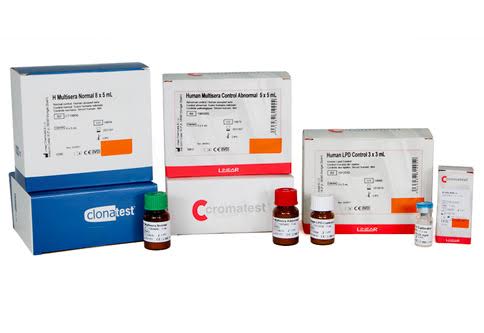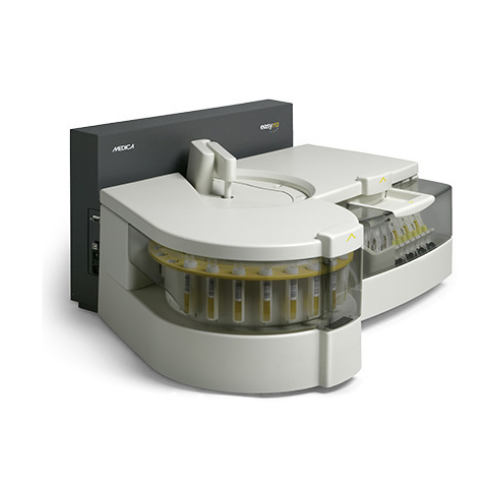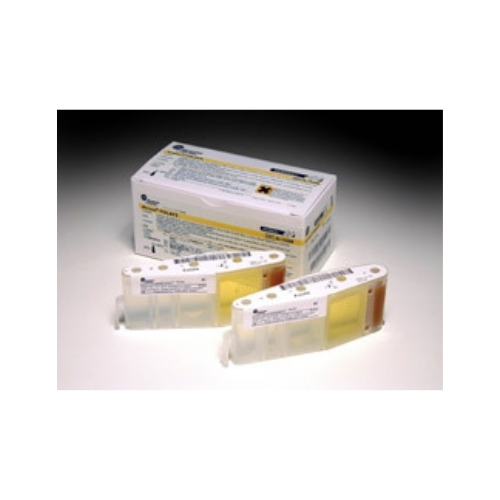For Business Use Only. Does Not Ship to Residential Addresses. For use inside an Analyzer, Sold Separately.
Olympus Urinary/CSF Protein, R1 4x52 mL, Calibrator 1x3 mL
Product Code: OSR6270
Shipping Weight: 10.00lbs (4.54kg)
Specifications
Manufacturer: Beckman Coulter
Country of Origin: Ireland
Application: Reagent
For Use With: For AU Clinical Chemistry Systems
Form: Ready-to-Use Liquid
Number of Tests: 4 X 125 Tests
Sample Type: Urine / CSF Sample
Storage Requirements: Requires Refrigeration
Test Name: Urine / Cerebrospinal Fluid (CSF) Protein
Test Type: Metabolic Immunoassay
UNSPSC Code: 41116004
Volume: R1: 4 X 19 mL / Calibrator: 1 X 3 mL
Intended Use
System reagent for the quantitative determination of total protein in human urine and cerebrospinal fluid (CSF) on Beckman Coulter AU analyzers.
About Urinary/CSF Protein
Measurement of total protein in urine is important in the diagnosis and treatment of diseases associated with renal, cardiac and thyroid function.
These diseases are often characterized by proteinuria of which there are four main types:
(a) increased glomerular permeability (glomerular proteinuria)
(b) defective tubular reabsorption (tubular proteinuria)
(c) increased concentration of low molecular weight protein (overload proteinuria)
(d) abnormal secretion of protein into the urinary tract (postrenal proteinuria). Increased levels of urinary protein may also be present following strenuous exercise or in the following conditions: monoclonal gammopathies, nephritis, diabetic nephropathy or urinary tract infections.
The measurement of total protein in CSF is important in detecting increased permeability of the blood/brain barrier to plasma proteins or to detect increased intrathecal production of immunoglobulins. Increased permeability of the blood brain barrier may result from conditions such as brain tumor, intracerebral hemorrhage or by inflammation caused by bacterial or viral meningitis, encephalitis or poliomyelitis. Determination of increased intrathecal synthesis of immunoglobulins is important in the diagnosis of demyelinating diseases such as multiple sclerosis.
Methodology
Many methods are available for the determination of urinary/CSF protein. These are based on colorimetric, turbidimetric, electrophoretic or immunological principles. Of the colorimetric methods the Biuret method lacks sensitivity, the Coomassie Brilliant Blue method has a limited linear range and also has the disadvantage of staining glassware and cuvettes. Results with the turbidimetric methodologies may vary depending on the type of precipitant and type of protein.
The Urinary/CSF Protein reagent is a colorimetric method. Pyrogallol red is combined with molybdate to form a red complex with a maximum absorbance at 470nm. The assay is based on the shift in absorbance that occurs when the pyrogallol red-molybdate complex binds basic amino groups of protein molecules. Under the conditions of the test in the presence of protein, a blue-purple complex is formed with a maximum absorbance at 600nm. The absorbance of this complex is directly proportional to the protein concentration in the sample.
Additional Description
Urinary/CSF Protein - Safety Data Sheet
Urinary/CSF Protein - Instructions for Use














